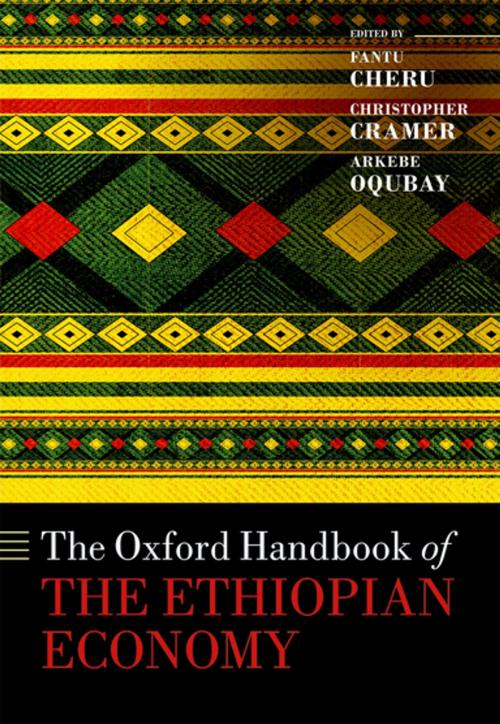| Author: | ISBN: | 9780192546456 | |
| Publisher: | OUP Oxford | Publication: | January 10, 2019 |
| Imprint: | OUP Oxford | Language: | English |
| Author: | |
| ISBN: | 9780192546456 |
| Publisher: | OUP Oxford |
| Publication: | January 10, 2019 |
| Imprint: | OUP Oxford |
| Language: | English |
From a war-torn and famine-plagued country at the beginning of the 1990s, Ethiopia is today emerging as one of the fastest-growing economies in Africa. Growth in Ethiopia has surpassed that of every other sub-Saharan country over the past decade and is forecast by the International Monetary Fund to exceed 8 percent over the next two years. The government has set its eyes on transforming the country into a middle-income country by 2025, and into a leading manufacturing hub in Africa. The Oxford Handbook of the Ethiopian Economy studies this country's unique model of development, where the state plays a central role, and where a successful industrialization drive has challenged the long-held erroneous assumption that industrial policy will never work in poor African countries. While much of the volume is focused on post-1991 economic development policy and strategy, the analysis is set against the background of the long history of Ethiopia, and more specifically on the Imperial period that ended in 1974, the socialist development experiment of the Derg regime between 1974 and 1991, and the policies and strategies of the current EPRDF government that assumed power in 1991. Including a range of contributions from both academic and professional standpoints, this volume is a key reference work on the economy of Ethiopia.
From a war-torn and famine-plagued country at the beginning of the 1990s, Ethiopia is today emerging as one of the fastest-growing economies in Africa. Growth in Ethiopia has surpassed that of every other sub-Saharan country over the past decade and is forecast by the International Monetary Fund to exceed 8 percent over the next two years. The government has set its eyes on transforming the country into a middle-income country by 2025, and into a leading manufacturing hub in Africa. The Oxford Handbook of the Ethiopian Economy studies this country's unique model of development, where the state plays a central role, and where a successful industrialization drive has challenged the long-held erroneous assumption that industrial policy will never work in poor African countries. While much of the volume is focused on post-1991 economic development policy and strategy, the analysis is set against the background of the long history of Ethiopia, and more specifically on the Imperial period that ended in 1974, the socialist development experiment of the Derg regime between 1974 and 1991, and the policies and strategies of the current EPRDF government that assumed power in 1991. Including a range of contributions from both academic and professional standpoints, this volume is a key reference work on the economy of Ethiopia.















